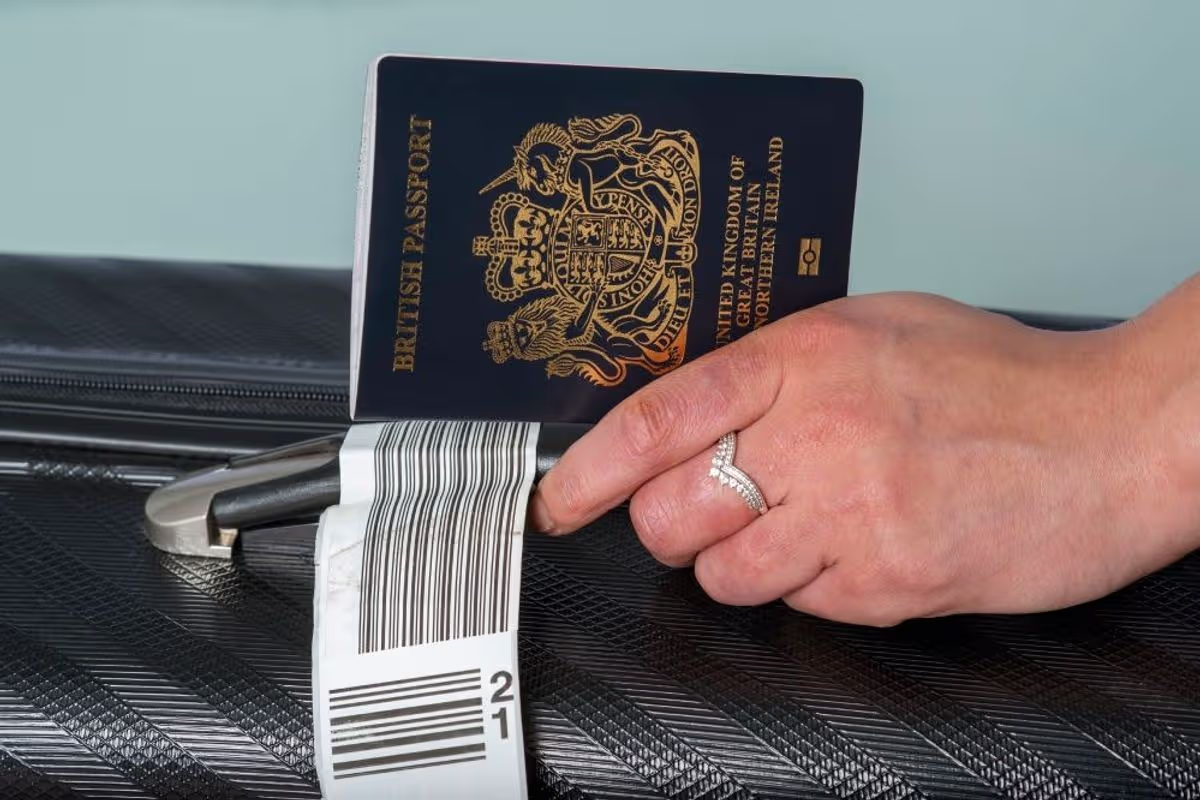If you’re heading abroad this year you’ll need to make sure your passport is valid – and that includes checking two key dates on your document before booking a trip
There are crucial passport checks you need to be mindful of before jetting off abroad, especially with the February half-term looming.
Over the past year, travel rules have undergone significant changes, including hikes in passport fees, the introduction of digital-only boarding passes, and rises in tourist taxes. However, one of the most frequent blunders is neglecting to properly check passports prior to reaching the airport.
If a passport is within its expiry date, it’s easy to assume it’s good to go. But what many Brits may not realise is that their passport must have at least three months’ validity when travelling to the EU.
This is calculated from the return date, not the departure date. So, if your holiday spans from 25 July to 1 August, your passport must be valid until at least 1 November 2026.
While some countries demand six months of validity, the EU only requires three, so it’s essential to verify your passport’s validity, reports the Express.
READ MORE: Brits warned of holiday chaos as flights are ‘full’ with little wiggle room
Another important check is to confirm your passport was issued within the last 10 years. The ’10 year rule’ has tripped up travellers, particularly those who received a passport prior to September 2018, as these were valid for 10 years and nine months.
Although the passport might seem valid, it could actually be over 10 years old and thus invalid for flying. Meanwhile, passports issued after September 2018 are valid for 10 years, with the ’10 year’ rule applying to all passports.
Should you discover your passport has lapsed for either reason, you can arrange a renewal via the government website. If time is tight, there’s an option to fast-track the application, though it’s advisable to submit your renewal request at the earliest opportunity.
In related travel news, the European Union (EU) introduced the new Entry/Exit System (EES) for non-EU travellers entering and leaving the Schengen zone last year. For British passport holders, this means that instead of receiving stamps, your biometric data, including fingerprints and a photograph, will be captured at the border when visiting a Schengen area country.
The Schengen zone encompasses many of Britain’s favourite holiday spots, including destinations anticipated to be particularly busy during February half-term as families jet off for sunshine breaks.
The Schengen area countries are: Austria, Belgium, Bulgaria, Croatia, Czech Republic, Denmark, Estonia, Finland, France, Germany, Greece, Hungary, Iceland, Italy, Latvia, Liechtenstein, Lithuania, Luxembourg, Malta, Netherlands, Norway, Poland, Portugal, Romania, Slovakia, Slovenia, Spain, Sweden, and Switzerland. Meanwhile, the Republic of Ireland and Cyprus fall outside the Schengen area, meaning EES doesn’t apply when travelling to these nations.
This adjustment came into force on October 12, 2025, designed to boost security whilst speeding up border processing. Holidaymakers needn’t take any extra steps before reaching the border, and EES registration carries no additional charge.
READ MORE: Wizz Air launches £46 flights to iconic island with incredible sunset views
Nevertheless, to guarantee a seamless holiday departure and prevent missing your outbound flight, passengers are encouraged to factor in extra time when turning up at EU airports or other points of entry. The digital EES remains valid for three years, after which travellers must supply fresh fingerprints or have another photograph taken at the border during entry and exit.
Whilst no extra preparation is required, it’s crucial to be mindful of this modification so you’re prepared for fingerprint and photo requirements when crossing into a Schengen zone. Additionally, understanding this change means you’ll anticipate potential hold-ups as the EES is implemented.
The new framework isn’t yet operational at every EU airport, so it’s advisable to verify beforehand and build in additional time. Full implementation across all Schengen nations is scheduled for April 10, 2026.
Meanwhile, ETIAS (European Travel Information and Authorisation System) is expected to go live later this year for those visiting the EU. The new visa waiver scheme will oblige Britons to complete an ETIAS application prior to their EU holiday, costing €20 per person.
Nevertheless, once granted following a pre-screening process, the ETIAS will remain valid for three years, or until your passport runs out. The rollout of the new scheme, which mirrors the United States’ ESTA system, hasn’t been confirmed yet, but it’s anticipated for Q4 of this year.





